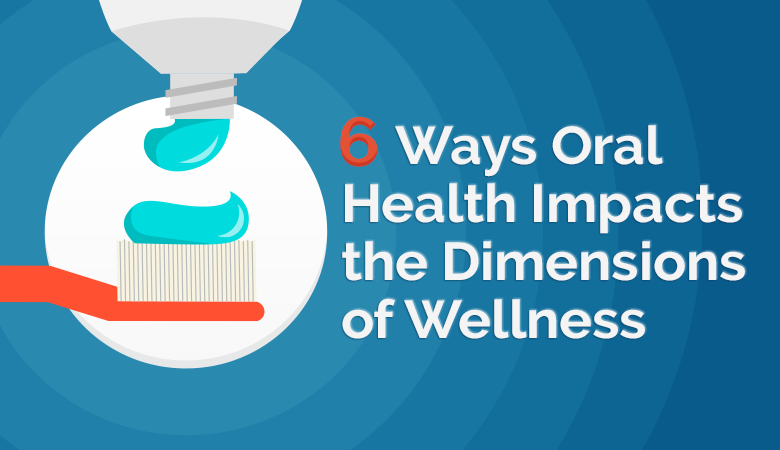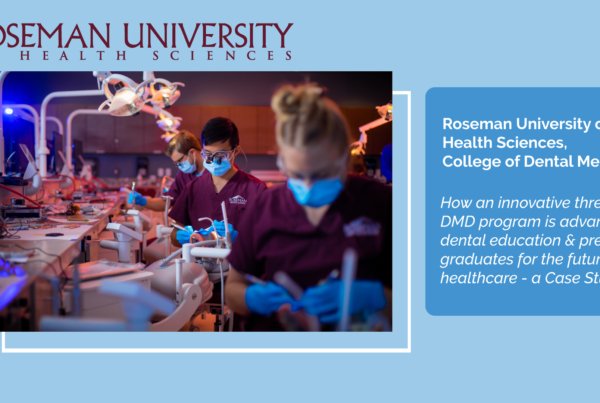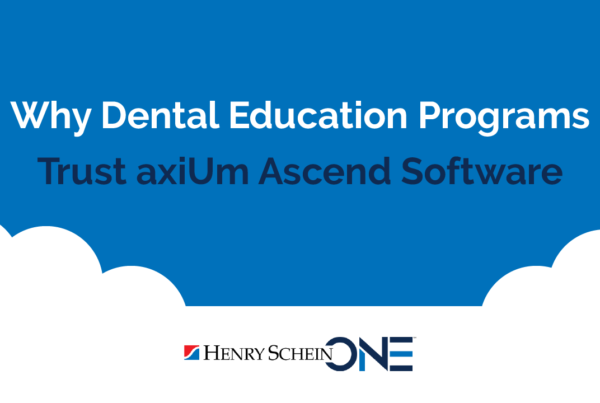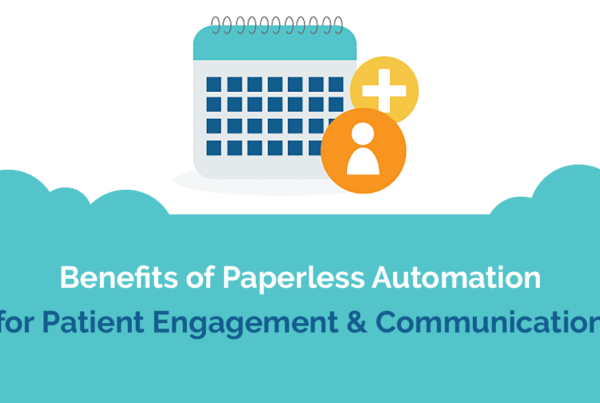Oral health touches every aspect of our lives. The Office of Disease Prevention and Health Promotion describes oral health as a critical contributing factor to overall wellness. At Exan, we believe that oral health impacts all people, and that exceptional oral healthcare is vital for all. According to the U.S. National Library of Medicine and National Institutes of Health, oral health impacts all dimensions of our wellness: emotional, intellectual, physical, social, vocational & environmental and financial. Here we explore in-depth these six ways.
1 Emotional
Oral health has an impact on our ability to convey emotions, as well as our capacity to feel positive about ourselves. Oral health influences how we react through facial expressions, as well as how we speak, smile, and swallow. It even affects our primary senses of smell, taste, and touch. These factors directly impact the emotional dimension of wellness, as oral health connects to how we express and feel about ourselves.
Unfortunately, according to the 2017 study, “The Global Burden of Oral Disease: Research and Public Health Significance,” oral disease affects 3.5 billion people around the world. Gum disease, tooth decay, and the presence of false teeth in older adults are prevalent. Oral illness and prosthetic devices signify the critical importance of good oral healthcare on emotional wellbeing for billions of people globally.
We may also develop an oral illness if we experience trauma or an excessive amount of stress and fail to prioritize self-care. Additionally, a lack of proactive personal care when navigating distress or strain can lead to alcohol abuse, illegal substance use, poor diet habits or neglect of personal hygiene. These, too, may lead to the development of oral illness, according to the Dental Health Foundation.
2 Intellectual
Expanding our knowledge as it pertains to oral health increases the intellectual dimension of wellness. The more we know about how oral health impacts us emotionally, physically, and spiritually, the easier it will be to establish a knowledge-based oral hygiene routine. Once we practice a routine that optimizes our oral health, we can share our method with our spouses, partners, children, or other family members and friends.
Education can generate an answer to the “why” of prioritizing oral health care and drive us all to take better care of our pearly whites. There are many fundamental ways to protect oral health. Brushing teeth twice a day, flossing daily, getting regular dental exams, and following a healthy diet are a few prime examples of taking care of teeth and gums. Dentists, dental hygienists and other oral specialists remind patients to prioritize these habits. They also provide additional resources, ensuring patients are made aware of the severity of healthy dental habits and how they contribute to overall health and wellness.
3 Physical
Oral health impacts more than the interior cavity of the mouth; the mouth is the window or portal to overall physical health. Poor dental hygiene can also connect to critical health conditions, including heart disease and stroke, according to a 2017 study conducted by Paula Sanchez at Western Sydney University titled “Oral health and cardiovascular care: Perceptions of people with cardiovascular disease.” The researchers found that there was a high prevalence of inadequate oral health among the participants who lived with cardiovascular disease.
- The CDC’s Oral Health Surveillance Report, 2019, found that 26% of adults in the US are living with untreated tooth decay.
- A 2018 study, “Periodontitis in US Adults: National Health and Nutrition Examination Survey 2009-2014,” indicated that nearly half of all US adults show some signs of periodontitis disease.
- The American Cancer Society predicts that approximately 53,260 people in the US will get an oral cavity or oropharyngeal cancer by 2020, and over 10,000 cases will be fatal.
Oral health is related to physical wellbeing because the oral cavity is the main entry point to both the digestive and respiratory tracts. When food and air enter through the pharynx or the throat, they control breathing and digestive passageways, according to text in “Anatomy and Physiology” presented by Rice University. Bacteria that form in the mouth can also work their way to these tracts, which can directly impact the immune system and lead to infection and disease. With proper dental hygiene, harmful bacteria are less likely to thrive in the mouth, which reduces its chance of weakening the body’s defence system.
Importantly, the reverse relationship between oral health and medical conditions exists: various medication conditions could be the causation of severe oral health issues. Research by Caswell A. Evans, Jr., D.D.S., M.P.H. of the University of Illinois at Chicago, College of Dentistry titled “The Connection Between Oral Health and Overall Health and Well-Being” found the following common conditions may have a direct connection to oral health:
- Diabetes: the metabolic processes that take place in a case of diabetes can be the indirect result of periodontitis.
- HIV: mouth lesions may be one of the first signs of an HIV infection.
- Chronic disease, in general: saliva in the mouth, can be used as a gateway to information involving hormones, toxins, and antibodies that could indicate other chronic diseases.
The Ontario Dental Association also highlighted thyroid issues, anemia, leukemia, and eating disorders as some of the other health-related conditions that may surface from oral problems.
4 Social
Just as we may let our dental health care providers take care of our oral health, dental health organizations also fulfill the social dimension of wellbeing by caring for us. Dental schools teach proper oral hygiene, and faculty and students perform routine cleanings as well as other procedures that maintain good oral health. Dentists, dental assistants, hygienists, and students help reduce poor oral health by providing patients with the utmost care and education. In turn, our chances of developing a chronic condition, such as coronary artery disease or cardiovascular disease, are limited in the long run.
5 Vocational & Environmental
While dental professionals and students both provide superior oral healthcare, oral health also impacts the vocational and environmental dimensions of wellness. These dental care providers demonstrate a commitment to a healthier planet through oral healthcare. They are aware that our daily habits impact our health on a grander scale.
Exan’s partnerships with these institutions foster a deep appreciation for dentists, dental assistants, hygienists, and students who practice in such a meaningful vocation. We understand that these dental students and professionals are participating in work that grants them personal satisfaction and vocational wellbeing because their provision of excellent oral healthcare enriches lives.
Exan works closely with 90% of the dental schools in North America, providing them with the leading dental education software – axiUm – which helps manage their dental operations. Exan also works with dental hygiene and dental assisting schools, providing them with axiUm Ascend – cloud-based dental software that allows their dental institutions to manage clinics remotely and seamlessly.
6 Financial
Practicing good oral health also affects on the financial spectrum of our wellness. From purchasing a toothbrush, floss, and paste to scheduling major dental procedures, managing resources to live within our means is essential to financial wellbeing. While the results show that the risk of poor oral health predominantly exists in those with socioeconomically disadvantaged backgrounds, these issues can threaten many individuals across varied demographics.
We are aware that everyone’s financial values, needs, and circumstances are unique. That’s where dental healthcare providers step in to help patients prepare for short-term and long-term needs or emergencies. With axiUm and axiUm Ascend software, this is made possible to dental, dental hygiene, and dental assisting schools, as well as dental offices and practices.
As a leading healthcare software option since 1995, axiUm supports both academic and enterprise operations as a comprehensive dental clinic management solution. The solution helps manage business administration, clinical efficiency, and student management, with an end goal of improving overall services and increasing profitability for organizations.
axiUm Ascend takes these goals and opportunities to another level, as the first cloud-based academic dental software option currently available on the market. Not only does it provide the same benefits as axiUm, but it also allows organizations to lower IT costs and better streamline support and overall operations across the board.
With axiUm and axiUm Ascend, educating students, staff, and patients on the importance of dental care and overall wellness becomes seamless.
Learn more about our dental education software platform options today.
Sources:
https://www.healthypeople.gov/2020/leading-health-indicators/2020-lhi-topics/Oral-Health
https://www.dentalhealth.ie/dentalhealth/causes.html
https://www.mayoclinic.org/healthy-lifestyle/adult-health/in-depth/dental/art-20047475
https://www.ncbi.nlm.nih.gov/pmc/articles/PMC5519046/
https://www.cdc.gov/oralhealth/basics/adult-oral-health/index.html
https://www.cancer.org/cancer/oral-cavity-and-oropharyngeal-cancer/about/key-statistics.html
https://www.ada.org/~/media/ADA/Publications/Files/patient_61.ashx
https://www.ncbi.nlm.nih.gov/books/NBK219661/
https://www.ncbi.nlm.nih.gov/pmc/articles/PMC5508938/





